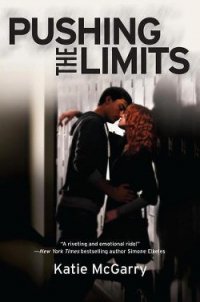Agent X - Boyd Noah (серии книг читать бесплатно .TXT) 📗
Vail said, “It’s the only way to track whoever set up Kate.”
“As much as I want to help Kate, I simply cannot authorize the release of that much money, knowing that it’s probably going to wind up in the hands of the Russians. We’ve already given them three-quarters of a million dollars.”
“Actually, we’re not going to give them anything. When you send the money, we’re hoping that their man here will transfer it to wherever he sent the other payments. I’ll have the bank put a twenty-four-hour hold on whatever bank it’s transferred to. Once it’s transferred out of here, we’ll immediately be able to determine the bank and the account number it’s being sent to. Then we’ll invalidate the transfer from here, and the money will be sent back to the account you forwarded it from. Zero loss.”
“Steve, it sounds like there are too many things that could go wrong, and then we’re out five hundred K.”
“John, take a few minutes to meditate over this. Even consult your ‘higher authority.’ ”
“Uh . . . oh, yes, yes, I could do that.” Kalix realized that Vail was hinting at contacting the director for approval.
“Good. Call me back when you’re done mulling it over.” An hour later Kalix called and told him the payment would be ready to be sent first thing in the morning.
Vail said to Carson, “Let me call Washington, Les, and then we’re on.”
While Vail made his call, Carson stayed on the line with the bank’s IT manager. After a few minutes, Carson hung up and said, “Okay, the half a million just arrived.”
Vail asked, “Right now, who can check on the account’s balance?”
“There are dozens of employees who have general access to account information, depending on their jobs.”
“And how many people can actually order transactions involving that account?”
“It takes a completely different level of clearance to move money out of it, generally vice presidents and above. You said these people are smart. Aren’t you afraid they won’t fall for this?”
“That’s always a possibility, but we have one thing going for us: five hundred thousand dollars. That’s halfway to seven figures. The best thing about greed is how quickly it melts even the smartest person’s IQ.”
“As many employee embezzlements as I handle in a year, I should get that little bon mot framed.” Carson checked his watch. “I don’t suppose there’s any way to tell how long this’ll take.”
“No, I’m not even sure this person is still working here.” Vail considered the possibility that with Kate in custody the Russians might have pulled their man out of the bank. But if he was still checking the account, no matter what he’d been told to do, the amount of money just transferred into it might be too great a temptation. “If he is, I would think he wouldn’t check that account any more than once a day—otherwise someone might notice. So if you’ve got work to do, Les, don’t let me keep you from it.”
Carson took a stack of papers from his in-basket and started initialing them. Vail picked up the newspaper from the small table next to him and began reading it.
A little before noon, Carson had lunch brought in, and the two men, evidently believing that a watched pot would never boil, found other things to talk about. When they were done eating, Carson went back to work, placing a call to Tommy to make sure everything was still being monitored. Vail started on the crossword puzzle.
At a few minutes to five, Carson noticed that Vail had fallen asleep. As quietly as possible, the security chief started clearing his desk. Suddenly the phone rang, and Vail’s eyes snapped open. The two men looked at each other. Carson straightened a little and picked it up.
“Yes.” He listened for only a moment before disconnecting the line. “The money’s being transferred right now.” He dialed a four-digit extension. “I want everybody to the basement immediately. Someone’s on the computer terminal there. Whoever it is, I want held until I get there.” Carson pushed the phone back into the cradle. “He used the same password as before.” Both men were moving toward the door. “We have one computer terminal in the basement, mostly for storage inventories.”
Once they were in the hall, Vail said, “Will the stairs be quicker?”
“No, the only access is by elevator. You need an override key.” They ran to the elevator, and Carson pounded the button repeatedly. Finally the car arrived.
Just as the doors opened to the basement, the two men heard three quick gunshots.
Vail drew his automatic and ran toward someone yelling for help. In a large room stacked with boxes, one man in a suit was on his knees tearing open the shirt of another man who’d been shot in the stomach. Carson, directly behind Vail, said, “Those are both my men.”
Vail raised the muzzle of his weapon upright. “Who was it?”
“That guy Sakis from accounting, Jonas Sakis. He went out that way.” He pointed to a corridor beyond the computer station.
The security man’s wound was now exposed, and Vail looked at it. He checked the man’s face for signs of shock. Carson was already calling 911. Vail took out a handkerchief and placed it over the wound, then pulled the kneeling man’s hand onto it. “There, use that much pressure. Watch him for shock. Les, where does that lead?” Vail nodded at the corridor the shooter had disappeared into.
“It’s a dead end. There’s no way out.”
The man on his knees said, “Except the old railroad tunnel.”
Vail remembered the news story from the early nineties, when an engineering miscalculation had caused the Chicago River to seep into the sixty miles of tunnels, forty feet below the downtown area. They had been built to move freight under the downtown area in the early 1900s. With typical Chicago buoyancy, a city that had been rebuilt after the Great Fire, the incident was referred to as the Great Chicago Leak. “The old freight tunnels?” Vail asked. “I thought those were sealed.”
“Our door is, but that’s the only thing back there.”
As Vail started in that direction, Carson said, “Steve, you’d better wait for the cops.”
“Either of you have a flashlight?” Vail asked.
The kneeling man pulled one out of its carrier on his belt and handed it to him.
“I’ve got a feeling that door is no longer sealed,” Vail said.
Without turning on the light, he followed the corridor until it turned right. As soon as he looked around the corner, he could see the door. It was made of steel and was three times the width of a room door. And it was open.
Before entering, he stood and listened. He couldn’t hear anything, so he leaned his head in. It was dark except for the ambient light from the bank’s storage space. The tunnel itself was concrete—floor, walls, and ceiling—six feet wide and maybe seven feet high. He snapped the flashlight on and then quickly off so he wouldn’t provide a lasting target. Thirty yards in was a concrete bulkhead with a gate, a lock and chain lying on the deck next to it. Without turning the light back on, Vail started toward it, his Glock raised to eye level. What is it with me and tunnels? He flashed back to the electric train tunnel in which he’d been buried alive during the Los Angeles case. Maybe I should wait for the cops.
Then he thought about Kate. When he’d been an agent, after a while there was a gamelike quality to working cases. They rarely took on any real urgency, any real consequence. If he failed on one, there were dozens more to take its place, and he still got to go home and watch the game that night. But he was getting just one shot at this, and it was ahead of him in the tunnel. He couldn’t risk losing the only lead that could free Kate. Whatever might happen to him was no longer a consideration.
When he reached the gate, he turned his light back on. Once he determined that the shooter wasn’t on the other side, he picked up the lock. It appeared to have been cut with a bolt cutter—and, from the surface rust, not recently. That meant the tunnel was a planned escape route, so Vail didn’t have to worry about being ambushed, because the shooter wanted to put as much distance as possible between himself and anyone foolish enough to pursue him. At least it sounded like a good enough theory to let him rationalize throwing caution to the wind. He turned on the light and broke into a trot.



